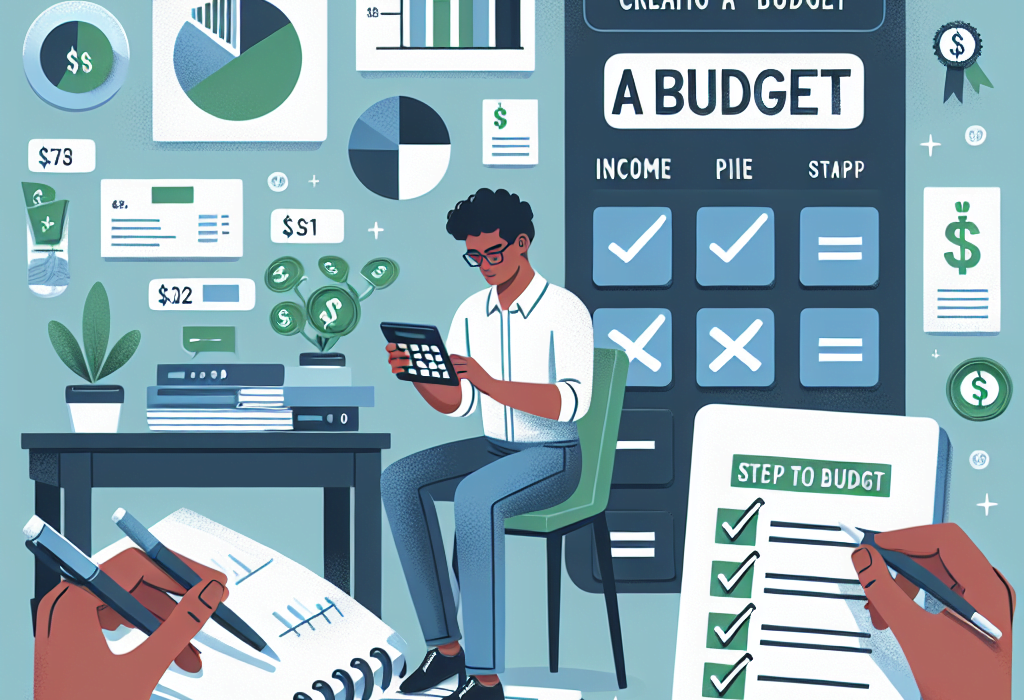Every successful financial planning initiative starts with a sound budget. Crafting a budget might seem like
a tedious task, but it’s a key tool in maintaining the health of your finances. In essence, a budget can
allow you to track your expenditure, save money, and prevent unnecessary spending. In this article, we’re
going to take a look at how to create a budget and stick to it, even if you’re a beginner.
Understanding why you need a budget
No matter if you are a student, professional, or retiree, everyone needs a budget. A budget provides a
clear picture of income, expenses, and net savings. It helps in managing money and identifying areas where
you can save. Being able to stick to a budget gives a sense of control over your money, prevents overspending, emergency preparedness, retirement readiness, and reduces financial stress.
Creating a budget
The process of creating a budget requires a thorough introspection into spending habits. It involves a few
steps:
Identifying Income
Start by getting a clear idea of your total monthly income, this can include salaries, bonuses, dividends,
pensions, or any other source. It’s important to be precise when calculating your income because this serves
as the foundation of your budget.
Tracking Expenses
Your regular expenses typically fall into two categories; fixed and variable. Fixed expenses are those that
don’t change, such as mortgage or rent, utilities, car payments, and insurance. Variable expenses change
from month to month, like groceries, gas, entertainment, and hobbies. Keep a record of all your expenses for
accuracy.
Setting Goals
Whether it’s saving for retirement, buying a house, or just reducing your spending, establishing goals will
help you remain focused while budgeting. They will guide your budget and give you a clear direction.
Creating and Balancing the Budget
Once you have all the required data, create a budget that fits your needs. Apps and software like
Mint and YNAB can be handy tools to assist with this process. The goal is to balance your budget where your
income minus expenses is zero or more.
Sticking to Your Budget
Creating a budget is only half the battle. Sticking to it is where the real challenge begins. Here are a few
tips for sticking to your budget:
Make it Realistic
Ensure your budget reflects your life realistically. Never lower your living standard unnecessarily to fit
into a budget. Ensure it’s flexible enough to accommodate sudden changes.
Use Cash or Debit over Credit
Using cash or a debit card can give you a sense of just how much you are spending, and can limit
overspending.
Review and Adjust
Regularly review your budget. This can help you to identify any areas where you may be overspending, or you
could save more. It’s worth adjusting your budget as your financial goals, income or expenses change.
Conclusion
Budgeting is more than just restraining from spending. It’s a plan for your money to ensure that you’re
using your income in a way that supports your financial goals. A budget done right is one of the best tools
you can use to manage your finances. It doesn’t take a finance guru to manage a budget; all it needs is
effort, perseverance, and consistency.
FAQs
1. What is budgeting?
Budgeting is a process to forecast and plan one’s spending according to his/her income.
2. Why is a budget important?
Budgeting helps to manage financial resources. It aids in controlling overspending, saving money, and
planning future financial goals.
3. How often should I review my budget?
You should review your budget at least monthly. However, more frequent reviews are beneficial during
significant financial changes.
4. Should I measure my budget’s success?
Yes! Your budget’s success should be measured by how closely you’re able to stick to it and whether you’re
achieving your financial goals.
5. What is income in terms of budgeting?
In the context of budgeting, income includes all the money you receive during a specific period. It can be
your salary, dividends, bonuses, pension and any other source.













